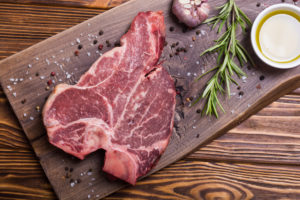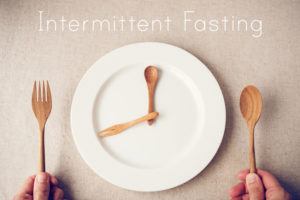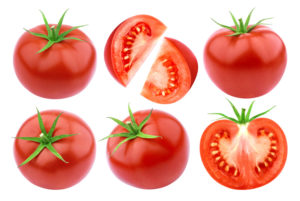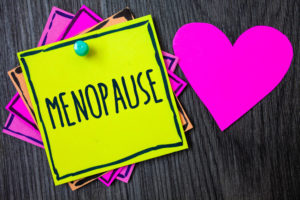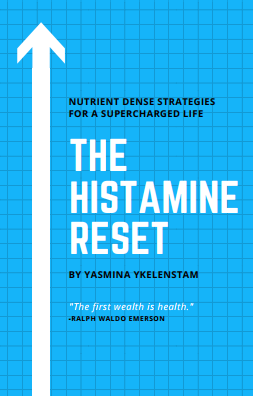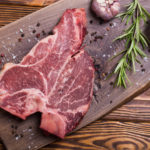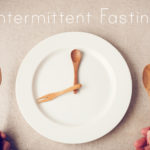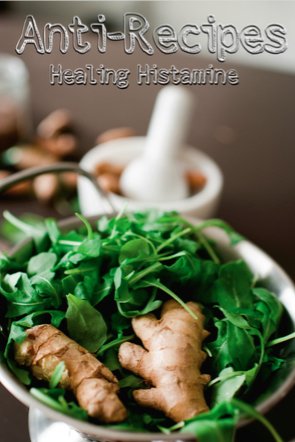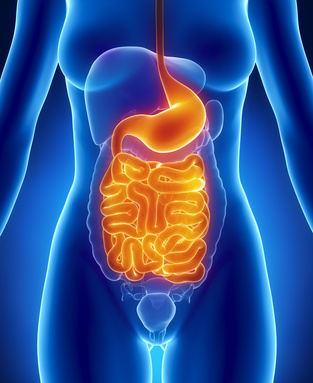
As one of the UK’s most well respected naturopathic practitioners and health writers, could you please share with my readers your view on the underlying causes of histamine intolerance?
Gosh, that’s the sixty million dollar question, isn’t it? I am not a histamine expert, and I am sure others will have much more on that, so I can only tell you how I see it.
It might be a problem producing the DAO enzyme that helps break down histamine in the body so you get a build up of histamine and the consequent symptoms, they might not produce enough histamine N-methyltransferase either, which inactivates histamine so the histamine remains very active, or they might even have too much Histidine Decarboxylase, an enzyme that converts histidine into histamine so they are very efficient at making histamine. Of course, they might have none, one or all of those going on!
There are other people who, according to research by Carl Pfeiffer in the 50s have a methylation issue and simply produce too much histamine. He calls this ‘histadelia’ and describes it as a familial, inherited disorder which usually shows itself in compulsive behaviours, anxiety and depression as well as increased allergic reactions, headaches, itching etc . In this case, he advises use of methionine which helps to detoxify the histamine in the body and calcium which releases the body stores of it. In fact, this is how I first got into looking at histamine and, if the blood level is high and those sorts of symptoms are present, there is a protocol that can be used, which is based on his work.
I suspect much of it is genetic predisposition, but I am beginning to wonder if it is acquired too in some people. My specialist area is gluten sensitivity and one thing we do know is that gluten can cause inflammation and auto-immune damage to pretty much anywhere in the body. We know it can affect the parietal cells in the stomach, for example, and people then go on to have problems producing stomach acid and instrinsic factor etc. I wonder if the damage is also being done to enzyme production/methylation in some way. I have no way of knowing and I haven’t had time to go down that investigative route so far, but I wouldn’t be surprised, especially as we are finding it a lot in people with gluten sensitivity, along with fructose and lactose intolerance.
Most people have no idea they are what we call ‘true gluten sensitive’ and they think that they are not coeliac and that’s the end of it, which is, sadly we are finding, very far from the truth. Does the gluten – or something else entirely – damage the enzymatic processes in some way or are we just born that way. I suspect there is a genetic predisposition that gets triggered but that is pure conjecture on my part!
What is your approach to diagnosing and treating histamine intolerance?
For years, I have done high blood histamine in depression/compulsive cases with allergy present just in case it is the methylation issue.
I really introduced DAO testing for my truly gluten free patients and readers. As part of the Barrier Plan, our treatment protocol designed to lower inflammation, repair the damaged mucosal tissues and prevent auto-immunity, the first thing I advise is that they remove any allergens in their diet that could be perpetuating the problems and stopping them healing.
Part of that is looking for gluten, fructose, lactose and histamine sensitivity. With those results, they can then get an idea of what diet they need to follow to enable optimal healing. That’s the ideal, of course, and not everyone either wishes to or needs to go that far. I then had to find ways of testing them all.
With histamine, I offer DAO testing and whole blood histamine, which can be done separately or together in the histamine intolerance test.
Obviously, the DAO enzyme will tell someone if they have enough of it nor not and the whole blood gives them the levels of histamine they have in their body. If the histamine is high and there is a lack of DAO, there’s your answer, although you could have normal levels of histamine and low DAO and that’s sometimes enough. It’s the difference between how much histamine there is and the ability to break it down.
You can test for methyltransferase and for decarboxylase genetically and possibly biochemically, which I haven’t sourced yet. If I get more into histamine – gluten is enough to deal with currently, trust me – then I will!
In reality, if there is a suspicion of histamine intolerance, we do the DAO/whole blood test and, even if negative, trial a low histamine diet and see if the person responds well to it.
In terms of treatment, I usually refer people to sites like yours and books to learn about histamine foods. I also tell them about DAO enzyme products like DAOSin, which sadly are not grain free for the truly gluten free people, but could be used by most others.
For the histadelia, I advise a specific protocol or finding someone who can help with that.
I also, of course, talk to them about auto-immunity, gluten and possible causes of enzymatic problems to try and see if they can identify the root cause if not wholly genetic.
In your view, is a low histamine version of the standard diet (most speak of SAD) enough, or should patients explore a higher nutrient diet?
Absolutely, they must not just take stuff out of the diet but need to nourish themselves well enough to heal and repair. In my limited experience, histamine intolerance tends not to occur in isolation and I advocate at least an anti-inflammatory, mucosal barrier repair diet as per the Barrier Plan if they can. People with inflammatory bowel disorders are known to have lower DAO and this is not surprising when you learn that the DAO is made by intestinal cells in the mucosal gut lining.
I also advise they seek other types of intolerance if they are not 100% better after a few months on low histamine. Many people with intolerances are malabsorbers too in my opinion, which makes it all the more important to eat well, as well as remove the allergenic foods. People with HIT have been found to be particularly low in B6, for example.
Which factors (diet, lifestyle, stress) impact production of the histamine degrading diamine oxidase (DAO) enzyme and release of histamine in the body?
This isn’t something I have looked into much yet. I do know that many pain killers can block the DAO production or increase the release of histamine from mast cells. So can some sleeping pills, asthma medication, mucolytics, anti-hypertension drugs and antibiotics. Leaky gut and H pylori infection are thought to make it worse.
Obviously, any amount of stress is going to have an effect on health generally and on the gut particularly, as would a poor diet, especially in relation to the gut flora levels.
The release of histamine in the body is going to be much higher in someone who is constantly taking in an allergen, whether they realise it is an allergen or not, which is why I advise trying to find allergens as much as possible and heal the gut to try and stop the allergens getting through and triggering the histamine reaction.
Do you believe leaky gut is the root cause of histamine intolerance?
Very probably to do with mucosal breakdown, yes, although I am not sure that is the primary cause as I said above. I think you have to go a step further and think about what might be affecting those intestinal cells supposed to be making the DAO, what is affecting production of the other enzymes, the methylation etc. I am convinced it is gluten in some people.
Although, it is interesting that many women especially seem to become histamine intolerant in their late 40s. Is there a hormone element or trigger maybe?
Having said that, I do find that gluten sensitivity and leaky gut does seem to ‘suddenly’ show itself around that age – is it just that it takes that amount of time for the body to show the problem outwardly, or we have lost the ability to keep it under control..?
Is there any way for people in other countries to take your test?
Yes, as long as they can send the DAO sample back within 7 days to the lab in Germany (their cost). Whole blood needs to be returned to the UK lab in 48 hours and not in the hold of a plane as it shouldn’t freeze, again their cost. I’ve done quite a few DAOs in Europe already; I think further afield would be a problem to get it back in time. People should check they can do that OK before ordering. There will be extra postage to send the kit (s) to them and I Paypal invoice that when they have ordered.
Micki Rose, DN Med, natural health consultant and writer
www.trulyglutenfree.co.uk (for gluten and grain sensitivity)
www.purehealthclinic.co.uk (main clinic site, A-Z of ailments etc)
www.purehealthshop.co.uk (tests, articles and ebooks)
ADDITIONAL RESOURCES
DAO TESTING IN THE UNITED STATES & CANADA
I haven’t tried either of these labs myself…please let me know your experiences if you have.
http://www.nutratestlabs.com/diamine-oxidase.cfm
http://lsialab.com/gb/Histamine_Intolerance_Test
The Anti-cookbook, while it doesn’t treat any conditions, due to its high nutrient, antihistamine and anti-inflammatory ingredients, has been instrumental in helping me feed myself on a limited diet. It features a six page list of antihistamine and anti-inflammatory foods. It comes in regular and Paleo.
The Low Oxalate Cookbook features antihistamine and anti-inflammatory rich recipes.
Don’t miss the Low Histamine Beauty Survival Guide for non-toxic beauty tips, the skinny on histamine releasing (mast cell degranulating) beauty ingredients, antihistamine and anti-inflammatory beauty alternatives and the top brands natural brands I’ve found.
Take a peek at my other low histamine and antihistamine cookbooks for more high nutrient recipes.
If you’ve found this information useful I’d appreciate your support (at no extra cost to you!) – please check out my online store for your health foods, supplements, kitchen items and beauty product purchases. Affiliate sales through my online store go towards maintaining the website, funding travel to interviews and purchasing all the lovely foods for my free online recipes. You’ll find these items in the “Shop with us” drop down menu on my homepage.
Please don’t forget antihistamine, pain killing foods can still hurt us, so please always check with your doctor before adding new foods to your diet.


